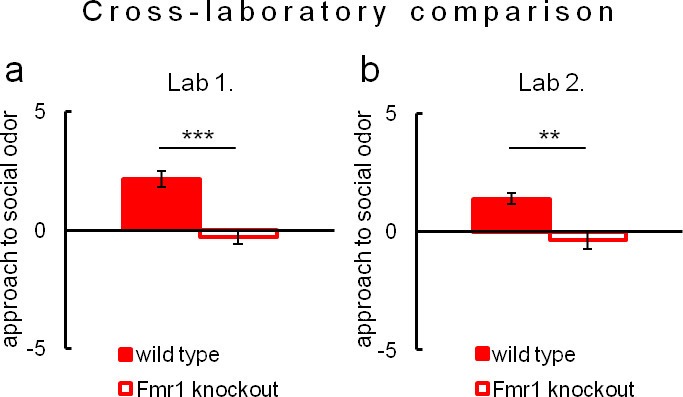(a, Fmr1 knockout n = 22, wild-type control n = 18) vs. (b, Fmr1 knockout n = 11, wild-type control n = 9). Regardless of experimental environment, evaluation carried out in Eco-HAB revealed comparable impairment in Fmr1 knockouts. Presented data are logarithmic values.
DOI:
http://dx.doi.org/10.7554/eLife.19532.025
Figure 6—source data 1. We include source data for Figures 6, 7 and 8 concerning reproducibility results of both Eco-HAB measures.The names of the Excel sheets refer to corresponding figures and contain data used for analysis of the behavioral measures obtained by the implementation of Eco-HAB.py software (see 'Materials and methods').
Figure 6—source data 2. We include source data for Figures 6, 7 and 8 concerning reproducibility results of both Eco-HAB measures.The names of the Excel sheetsrefer to corresponding figures and contain data used for analysis of the behavioral measures obtained by the implementation of Eco-HAB.py software (see Materials and methods).

